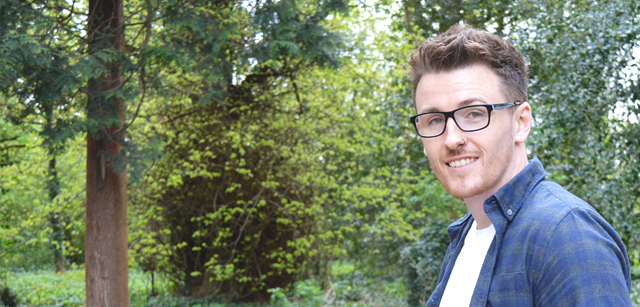By Ryan Ritchie
By time I was 18 years old, I had already endured five years of suffering alone with generalised anxiety disorder.
As I matured into my teenage years, the increasing weight of anxiety uncomfortably resting on my chest, my ability to speak out flickered like a weak flame. Like a python securing its prey: with each attempt I made to struggle free, the tighter the grip became.
I needed to be liberated from this vice-like hold. The problem I faced with my invisible perpetrator was that I knew very little about its weaknesses, and I was convinced that nobody else knew either.
When you’re isolated and live within the constraints of your own mind, it’s difficult to see any way out of this prison. There is a resident dark cloud parked directly in front of your eyes shadowing any glimmer of hope.
I began withdrawing from those closest to me. I was scared of hurting other people through actions which were out of my control. I decided to push as many people away from me as possible. It was brutal for me because I couldn’t justify why I was acting this way to the people who deserved to know the most.
When you’re isolated and live within the constraints of your own mind, it’s difficult to see any way out of this prison.
Anxiety makes you feel different from other people around you. You feel angry, emotionally exhausted and it makes everyday life excruciatingly painful to endure.
I know, because I’ve been there; I’ve been right where you are.
Until you decide what is worth more to you, pain or your happiness, this dense atmosphere will continue to work its way into any remaining courage and strength you have reserved in your heart.
After five years of living in excruciating pain, on my 19th birthday that I decided to take this thing on head first. I had an epiphany about my suffering; I have the strength to endure this level of pain every day, from the moment I wake up, until I go to sleep. What if I could redirect that strength and focus that energy on my recovery?
The first step was removing anxiety’s advantage over me: its invisibility. I decided to humanise my illness: I called the collective experience of anxiety my gremlins. Gremlins can be defeated, they can be trained and they can be managed.
Once I humanised anxiety, I started to focus on what made it angry, what made it incredibly hard to control and when it was at ease, and I learned behaviours.
My gremlins were the most hurt and neglected parts of me that I failed to care for over the years. I understood why I found it difficult to pick up the phone or leave my house some days: because these broken pieces of me were never repaired.
Finally, I was willing to speak about what was going on in my head. The first time I admitted that I wasn’t alright out loud was the most terrifying experience of my life, but it’s the reason why I’m alive right now.
Anxiety makes everyday life excruciatingly painful
I communicate about my illness with people who I trust. Because of this, I have formed the strength which has kept me going. Speaking out saved my life, and if you’re reading this and you feel alone because of your pain, I encourage you to do the same. I had momentary irrational thoughts of unleashing complete chaos by sharing my suffering, but they were quickly outweighed by the feeling of receptive love and compassion I experienced after I opened up.
The irrefutable fact is this: people care about you. It may be a complete stranger or it may be your best friend, but they care. Focus on what you have complete control over: your choice to speak out and share your story.
Today I have my anxiety (my gremlins) under control.
Build a support system and your recovery will be on the right path, and your daily struggles will become that much more manageable.
Remember this: pain is real but hope is real too. It’s up to you to choose which you believe in most.
Ryan experienced severe anxiety for years before seeking help. The average delay children face between experiencing their first symptoms and receiving treatment is 10 years. Learn more about this and support our work to ensure a fairer future for young people’s mental health.


